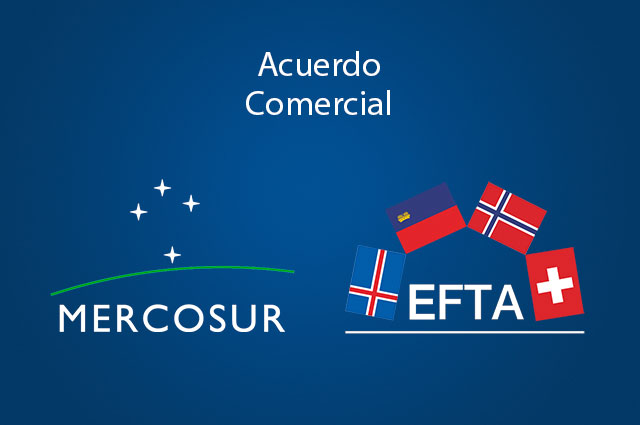Joint Statement: Conclusion of MERCOSUR–EFTA Negotiations
On Friday, August 23, 2019, in Buenos Aires, negotiations for a Free Trade Agreement between MERCOSUR and the European Free Trade Association (EFTA)—a bloc composed of Iceland, Liechtenstein, Norway, and Switzerland—were officially concluded. Negotiations between the two blocs were launched in January 2017 and concluded after ten rounds.
This agreement is the logical continuation of the landmark Association Agreement reached in late June between MERCOSUR and the European Union (EU). Together, these two agreements will provide MERCOSUR with preferential access to almost the entire European continent.
The EFTA countries represent a free trade area of 14 million people. Three of its members—Switzerland, Norway, and Iceland—rank among the five countries with the highest purchasing power in the world. Collectively, they have a GDP of over USD 1.2 trillion and are major players in international trade: together, they rank fifth globally in trade in services and ninth in trade in goods. Trade between MERCOSUR and EFTA countries currently amounts to approximately USD 7 billion annually.
The agreement covers both tariff-related and regulatory matters, including services, investment, government procurement, trade facilitation and customs cooperation, technical barriers to trade, sanitary and phytosanitary measures, sustainable development, competition, trade defense, and intellectual property.
In terms of market access for goods, more than 97% of MERCOSUR’s export offer to EFTA countries will receive preferential treatment. Products set to benefit from improved access conditions include beef, poultry, wine, corn, honey, and vegetable oils, among others. EFTA will eliminate tariffs on nearly all manufactured goods, significantly improving their integration into global value chains. A particularly notable development is that Switzerland and Norway are, for the first time, granting bilateral quotas to MERCOSUR. Also unprecedented is EFTA’s decision to grant duty-free access for the vast majority of agricultural quotas consolidated in the WTO.
This agreement with EFTA—like the one reached with the EU—forms part of broader ongoing negotiations aimed at opening new markets for goods and services from our region. In the current context of increasing global trade tensions, an agreement of this nature will help ensure stable rules for accessing a key export market, thereby enhancing the competitiveness of MERCOSUR exports in Europe.
The conclusion of this negotiation comes two years after its launch. Together with the recent conclusion of talks with the EU, this achievement is yet another demonstration of what MERCOSUR can accomplish when its Member States work together with shared objectives.
Buenos Aires, August 23, 2019




